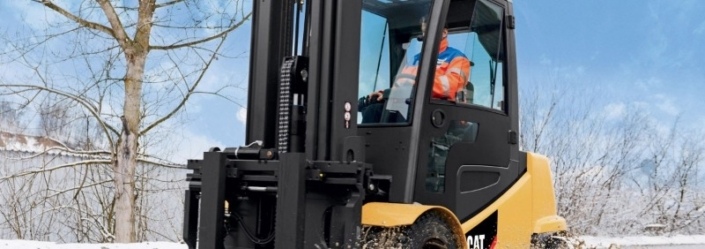Cold Weather Protection Tips For Your Forklifts and Operators
Forklift operators encounter a unique set of risks and challenges during the winter including heavy snowfall, ice accumulation, wet and slippery conditions, sub-zero temperatures and limited visibility.
To prevent weather-related incidents, accidents or injuries, it’s recommended that you take the following steps:
Protecting Your Operators
It’s important for your operators to stay warm so that they can stay safe and productive. Having an enclosed operator compartment and a heater or a defroster can go a long way to keep operators comfortable.
Outfitting Your Forklifts
When facing winter conditions, it’s necessary to guarantee that your forklifts can safely operate in the wet, slippery conditions created by accumulated snow and ice. That ensures that your forklifts have enough traction to start, stop and navigate without entering into uncontrollable and dangerous slides. It’s also key to use batteries that are designed to work or be charged in cold conditions.
Forklift Operator Training
Aside from supplying the proper equipment to your employees, it’s essential to educate your operators on proper management for the additional challenges caused by the winter weather. Inspections before and after each shift should be conducted to avoid issues such as cold starts. This allows the forklift to properly warm up before operating – this is important for both the engine and the hydraulics. Cold starts also increase fuel consumption and increase wear and tear.
Maintenance Needs
The sub-zero temperatures and extra moisture found throughout the winter months creates a number of additional maintenance concerns for any outdoor forklift operation. This includes matters such as:
- Proper tire pressure and tread depth
- The operation of the ignition switch, starter and glow plugs
- Coolant and lubrication levels
- Change wipers, seals, and lubricants (if necessary)
By spotting and reporting issues as they develop, this will help reduce downtime and repairs costs.



